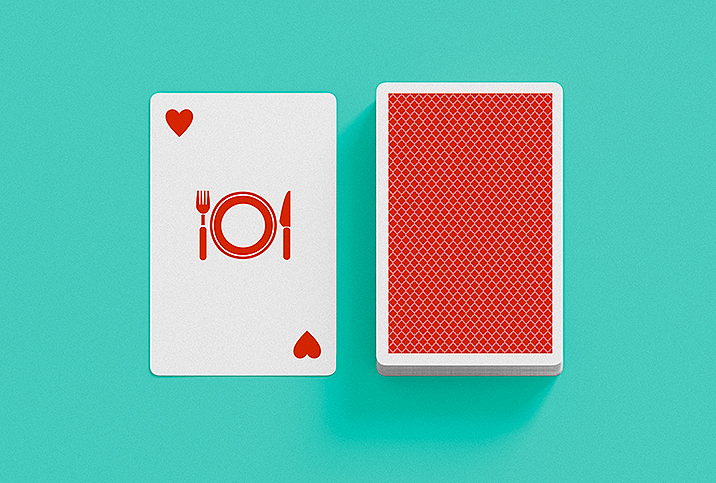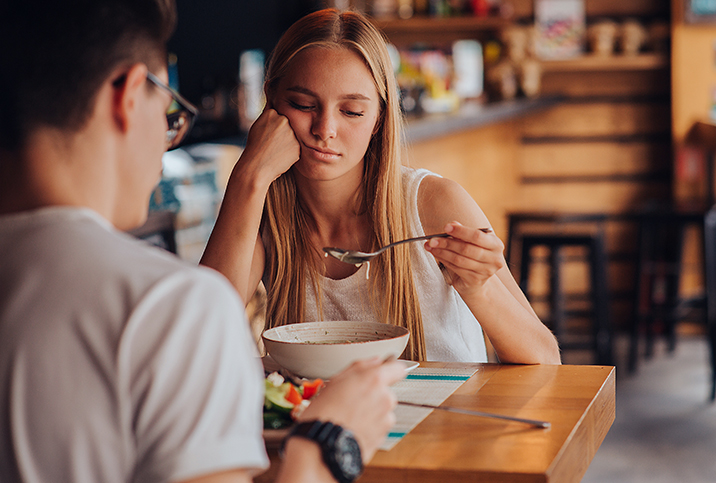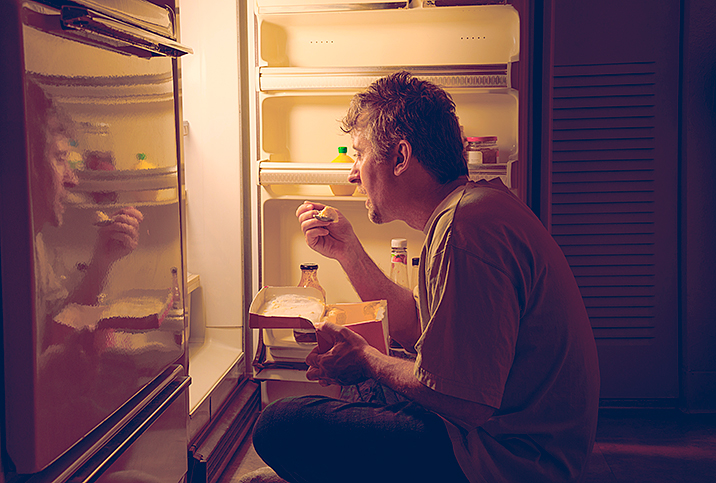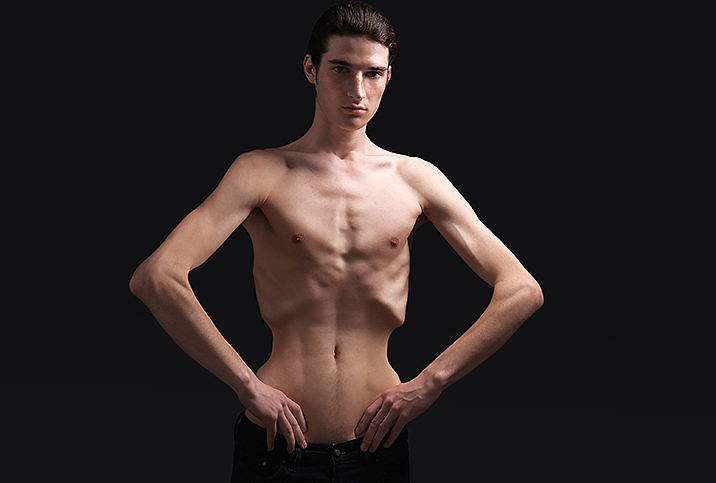How Does an Eating Disorder Affect Your Libido?

Key Points
- Eating disorders have far-reaching effects, and failing to consider these implications can hinder proper treatment and support for individuals.
- Diagnosable disorders have unique symptoms and behaviors, but they all involve a distorted relationship with food and body image.
- In some cases, caloric restriction can decrease libido when the body starts to break down muscle.
When people think of eating disorders, they often imagine that the primary implications for a person suffering from the eating disorder are directly confined to their nutrition and the adverse health consequences that typically follow.
However, eating disorders have far-reaching effects on a person's life, ranging from physical health manifestations to mental health challenges such as depression and anxiety. An eating disorder can have a ripple effect, which impacts the person's social life, intimate relationships, and sexual health and performance. Eating disorders and libido are even tied to each other.
Failing to consider such implications of an eating disorder can impede proper treatment, support services and well-being for the person struggling.
To learn more about how eating disorders affect physical, emotional, and sexual health and relationships, we spoke with several experts in the field who offered comprehensive advice. Find out how eating disorders can affect your dating life, romantic relationships, sexual health, and overall physical and emotional well-being.
What are the primary eating disorders and what are the symptoms?
"Eating disorders" is an umbrella term that describes a number of different diagnosable disorders regarding eating, feeding, food intake, and one's relationship with food and body image.
The most commonly identified eating disorders are anorexia nervosa, bulimia nervosa, binge eating disorder (BED) and eating disorder not otherwise specified (NOS), according to Wendy Schofer, M.D., the founder of Family in Focus in Wilmington, Delaware.
Some of the symptoms and behaviors of certain eating disorders overlap, but there are unique aspects for each diagnosable eating disorder.
"Individuals who experience anorexia nervosa restrict their caloric intake and often increase their exercise levels, often in association with an extreme fear of gaining weight and a disturbed sense of body weight and body image," she said. "Individuals with bulimia nervosa will tend to experience periods of eating large quantities of food and then compensating to purge, perhaps by inducing vomiting, restricting food, using laxatives or excessive exercise. There is an associated excessive, persistent concern about body weight."
Recommended
- Dating With an Eating Disorder: For couples, a mental health challenge can feel like an unwelcome third party.
- The Effects of Eating Disorders on the Heart: Untreated eating disorders can lead to serious health problems, including heart complications.
- Big Boobs—What Should You Know About Supporting Your Girls?: Experts explain how to find the best bra for big breasts.
Anorexia nervosa and bulimia are the eating disorders most people are familiar with, but binge eating disorder is quite common. About 2.8 million American adults are estimated to have BED. That's roughly 1.2 percent of the population, as compared to 0.6 percent who have anorexia and 0.3 percent with bulimia.
"Binge eating disorder is a common disorder that involves eating rapidly, until uncomfortably full or eating large amounts without feeling physically hungry, often with feeling guilty after the binge," Schofer said. "Eating disorder NOS is just that. It's not meeting the full diagnostic characteristics of the other disorders."
One thing to note is that having an eating disorder does not necessarily mean your body will look a certain way, as in underweight or overweight. Rather, anyone can suffer from an eating disorder, which can make diagnosis difficult, particularly for those who fall outside the "norm" in terms of the body shape people envision when they think of someone with an eating disorder.
"All of the eating disorders can happen to individuals with bodies of all shapes and sizes," she said. "In fact, you cannot tell who is healthy or unhealthy, who has an eating disorder or not, simply by looking at them."
Yes, there is a lot of value in seeking a specific diagnosis for the particular eating disorder you may have. But, according to Schofer, it's helpful to think about the clinical manifestations or symptoms of the eating disorder because these are what actually affect the individual.
"While it's not a diagnostic categorization, I find it helpful to understand the underlying struggle an individual has, more so than the diagnosis," she said. "Like not having enough calories, purging and bingeing. But here's the thing, the symptoms aren't just the diagnostic criteria. The symptoms that we actually see are a fear of food, a fear of gaining weight, a desire to compensate for what has been eaten, and a perception that the body is 'wrong' or needs to be changed, often in relation to decreasing weight."
Can an eating disorder lead to other conditions?
Eating disorders are highly comorbid with other mental health conditions, such as depression, anxiety disorders, obsessive-compulsive disorder (OCD) and post-traumatic stress disorder (PTSD), said Jenna DiLossi, Psy.D., a clinical psychologist and the cofounder and clinical director at Center for Hope & Health in Ardmore, Pennsylvania.
"It's difficult to make an assumption of causality in each case, but there is often a relationship between the eating disorder and the additional disorder(s)," she said. "There are also several other physical health associations with eating disorders such as but not limited to problems with fertility, cardiac difficulties, GI concerns and orthopedic concerns."
What's the worst outcome of an eating disorder?
Given the wide range of eating disorders, it's probably not surprising that there is a range in the severity of an eating disorder and its implications for physical and mental health.
Schofer said eating disorders can become quite severe and impact many different body systems.
"The worst thing that can happen is death, which can happen from electrolyte imbalances, cardiac [heart] rhythm disturbances and muscle weakness," she said. "There's also a higher risk for suicide in individuals who suffer from eating disorders.
"Perhaps the most impactful consequence of eating disorders is the underlying disordered perception in the first place. If this is untreated, it can lead to severe body dysmorphia and social and physical restrictions. There is, unfortunately, a shroud of shame around eating disorders, which tends to create isolation for those already suffering."
DiLossi said with the exception of opioid use disorder, eating disorders remain the most lethal of all mental health disorders.
"This is especially true in cases of anorexia nervosa, most notably when the case becomes chronic," she said. "That is, it's been present for more than three years."
What Is It Like to Date an AI Chatbot?: For some people, companion chatbots offer thrilling possibilities for romantic relationships. AI companionship can fill the emotional needs of people dealing with loss, addiction or social anxiety. Find out more.
What are the common misconceptions about eating disorders?
A host of myths and misconceptions about eating disorders are perpetuated in society, all of which can negatively impact a person's access to treatment and support, as well as seeking a proper diagnosis.
"While we classically think of people with anorexia as being underweight and those suffering from bulimia as being overweight, those are not helpful generalizations," Schofer said. "In fact, it can be harmful to stereotype which type of eating disorder an individual can be experiencing if we consider their weight as a part of the classification."
Another common misconception about eating disorders is that the onset is more related to biology and genetic predispositions despite what the media and pop culture say, DiLossi said.
"The next most noticeable culprits include parental modeling as it relates to food/eating behaviors and beliefs in addition to body image and environmental events related to food and body image," she said. "For example, being ridiculed or highly lauded about their appearance or body."
Another notable misconception is that eating disorders are virtually untreatable and the individuals who have them will struggle with the eating disorder for the rest of their lives, she added.
"We now have two highly effective treatments available," DiLossi said. "There's cognitive behavior therapy-enhanced (CBT-e) for adult bulimia and binge eating disorder and family-based treatment (FBT) for adolescent bulimia and anorexia. Unfortunately, there is no superior treatment for adult anorexia, but CBT-e is a suitable treatment."
"One misconception is that an eating disorder is simply a lifestyle choice," said Bethanne Keen, Ph.D., a clinical psychologist in Scottsdale, Arizona. "Research shows that these disorders result from a complex interaction of genetic, biological, behavioral, psychological and social factors. In particular, the brain circuitry alterations seen in people who've undergone semistarvation found in many eating disorders may complicate recovery and increase the likelihood of relapse."
The Purpose of Pubic Hair: Pubic hair's stigma is rarely discussed. Despite this silence, or maybe because of it, people may feel pressure to keep it trimmed or completely shaved. But only you should decide whether it stays or goes. Find out more.
How does an eating disorder affect libido?
The eating disorder itself will determine the various ways in which it can affect your libido. For example, someone suffering from anorexia nervosa restricts calories, which can reduce libido by impacting hormonal production and function and energy levels.
"Specifically, [caloric restriction] can decrease libido when the body is trying to preserve itself and starts breaking down muscle," Schofer said. "Also, when individuals are focused on their body image and weight, they often have thoughts and feelings that interfere with their sex drive. A thought like 'My body is not attractive' can lead to a feeling that will contribute to decreased sex drive."
It is often the unhealthy perception of the body associated with an eating disorder that impacts libido even more so than the eating habits themselves, she added.
"Socially, if you're so focused on how, when, what to eat and then how and when to use the calories consumed, it interferes with sex life," she said. "It's really hard to focus on enjoying sex when you're focused on judgments about your body."
Due to the decrease in libido and general discomfort with one's physical body, they cause, eating disorders can thwart a healthy relationship that includes sex and intimacy.
"It's not unusual for one to have a pattern of difficulty or a nonexistent relationship with dating while their eating disorder is present," DiLossi said.
Increased awareness
The good news, Schofer said, is that there is more awareness around eating disorders today.
"There are a few things that we don't talk about enough, but help is available," Schofer said. "There is help available for individuals suffering from eating disorders, as well as support for their family members. Additionally, not everyone who eats large quantities of food has an eating disorder. It isn't helpful to label others as having eating disorders."
It is crucial that as a society, we work to address the weight stigma that often contributes to developing or perpetuating eating disorders, she added.
"We culturally have adopted thoughts about our bodies," she said. "What is good or bad, healthy or unhealthy? Those general thoughts are often unhelpful. For example, the weight bias against living in a larger body has contributed to many disordered approaches to eating and has also led to inadequate help for people in larger bodies with eating disorders."
If you have concerns for yourself or a loved one, speak with your healthcare provider or therapist for an evaluation. Many online resources can help, including the following:


















